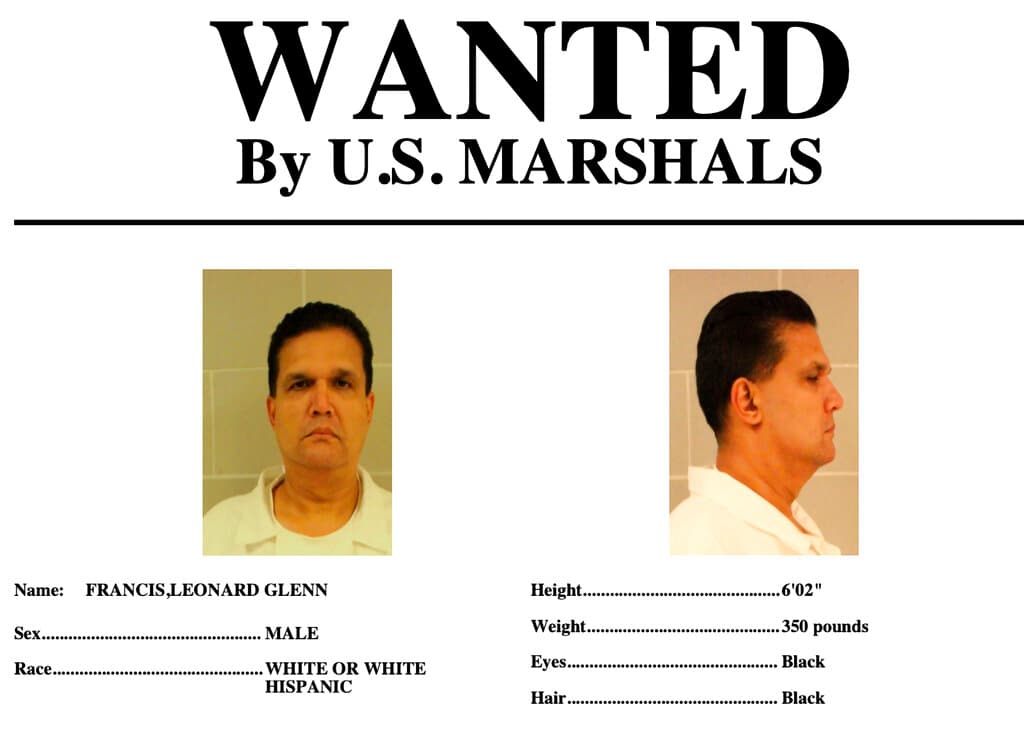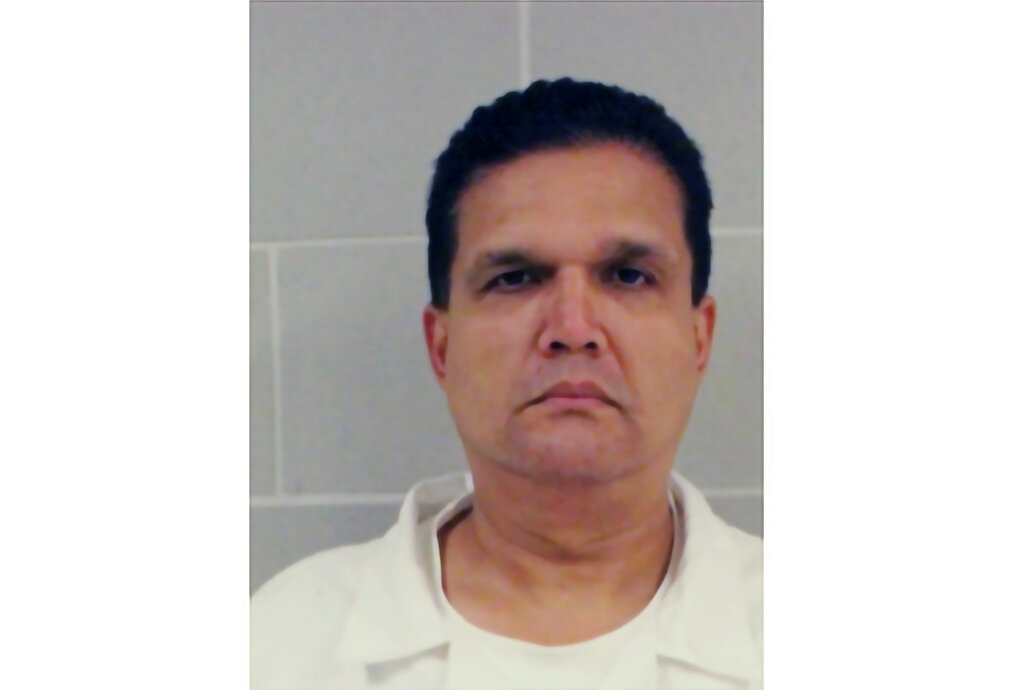With ‘Fat Leonard’ Back in American Hands We Could Start To Learn What He Did With What He Knew About Our Fleets
Case could yet turn out to be the worst corruption scandal in American military history.

What could yet turn out to be the worst corruption scandal in American military history just got more compelling with the surrender by Venezuelan authorities of Leonard Glenn Francis, better known by the moniker “Fat Leonard.” He was put into American hands in an exchange that had once seemed highly unlikely if not impossible.
With Francis back in the land from which he made his great escape more than a year ago, investigators will want to grill him on a critical question that has so far gone unanswered: How much of the intel that a galaxy of bemedaled American navy officers gave him in return for lovely Thai and Vietnamese girls, fine food and drink, fancy hotels, and Cuban cigars did he relay to Russian and Chinese contacts?
Francis, now 59, is believed to have been playing two sides of the street, working for America’s enemies while milking his navy contacts for hyper-sensitive information as well as millions in excessive charges for the services his company offered American warships. Investigators will have the chance again to grill him for the secrets of his extraordinary success in winning the hearts and minds of naive, greedy, womanizing American officers.
A hulking six-foot-two-inches tall, “Fat Leonard,” who once tipped the scales at 350 pounds, is expected to double down on the cooperation he had previously offered investigators before evading house arrest in San Diego in September 2022 by snipping off his ankle bracelet and fleeing to Mexico, then Cuba and Venezuela.

Incredibly, the leftist regime of President Maduro, with which Washington has no diplomatic relations, agreed to return Francis, along with ten Americans they were holding for various reasons. Washington got them back in exchange for a businessman friend of Mr. Maduro, Alex Saab, a Colombian citizen who had been held in Miami on money-laundering charges.
“Fat Leonard,” who had been awaiting a lengthy sentence while confined to his posh San Diego home, now faces a prison term of still more than the 25 years he might have received for bribing high-ranking American navy officers and contractors in the Pacific into agreeing on inflated bills for his company to service their vessels in Singapore and in ports in the Philippines.
For Washington, the worst aspect of the case was not the money, as much as $50 million, that Francis profited from vastly overcharging for the services of his company, Glenn Defense Marine Asia Limited, but what it has said about the porousness of American security in a region in which the Americans confront rising threats from Communist China and Russia.
Fears have spread over the eight years since “Fat Leonard” confessed to bribing more than 30 navy officers and contractors — just the tip of an iceberg in which the navy investigated scores of others who might have been involved in the notorious scam in which an American rear admiral had the distinction of being the first American of flag rank convicted of a felony while on active duty. He was among 22 officers and contractors who pleaded guilty while others still await trial.
What is most shocking about the whole case is that “Fat Leonard” obtained intelligence information on the movements of American warships so his company could be awaiting them, ready to perform services ranging from food supplies to sewage disposal to scrubbing off rust and barnacles.
Yet might some of that sensitive information have gone straight to Chinese and Russian intelligence contacts, eager to know all about the movements of American warships? Investigators need answers as the Chinese communists tighten their grip on the South China Sea, through which American vessels pass on routine missions, and Russia counts on Kim Jong-un’s North Korean regime to provide artillery shells and other munitions for the war in Ukraine.
“Of course the case damaged the U.S. Navy from a trust perspective,” a retired American army colonel, David Maxwell, tells the Sun. “In terms of intelligence of course it could have compromised ship movement.”
Colonel Maxwell, a former special forces officer and veteran of five tours in South Korea, says “I have no doubt that the Chinese and Russians are collecting on every contracting organization throughout the world to track the movement of the US military movements. That is the weak link in every operation.”
Colonel Maxwell adds, “More intelligence is gathered through host nation logistics coordination as well as contracting and procurement information than through any other means.”
China was “the U.S. Navy’s greatest adversary,” said the U.S. Naval Institute News nearly five years ago as the multi-tentacle investigation was wrapping up for the first time. Indeed, said the journal, “the best and brightest officers in the service cycled through deployments in the 7th Fleet,” headquartered at the Japanese port of Yokosuka. Promotions of officers were “put on hold” as the inquest was “rippling up to the highest levels.”
While the Navy made much of the crimp in promotions, in which the poor guys had to endure extra years in their current ranks, the most devastating aspect of the scandal was what it said about security in a region fraught with national rivalries and incessant tension — and what it revealed about the loyalty of America’s naval officers.
“Fat Leonard,” now awaiting sentencing, fooled the idiots who were watching his San Diego home so successfully they weren’t even there when he left for Mexico while his family returned to his native Malaysia.
“Fat Leonard cost the U.S. Navy more than money,” wrote a research fellow at the United States Study Center at Sydney, Blake Herzinger, in Foreign Policy. “The corruption scandal has left a lingering legacy of distrust and unreadiness.”
“Fat Leonard,” now on his way back to San Diego to await sentencing, probably can forget about living in the lap of luxury with his wife and kids. He fooled the idiots who were watching him so successfully that they weren’t around when he left for Mexico while his family reportedly returned to their native Malaysia.
“Fat Leonard” took a circuitous route that suggests he believed what he knew about the Americans might be his greatest asset, the means to survival. From Mexico, he hired a private plane to Cuba, which rejected him. Then, flying to Venezuela, he was about to board for Russia, where he was sure he would be welcome as a source and a friend.
The Venezuelan authorities, tipped off by Interpol, nailed “Fat Leonard” before he could board, however, and presumably milked him for all he could tell them about his American navy friends. In the end, Mr. Maduro realized he might serve a still greater purpose — the recovery of his friend Mr. Saab, who allegedly made mega-millions by fraudulent dealings, many with Venezuela.

